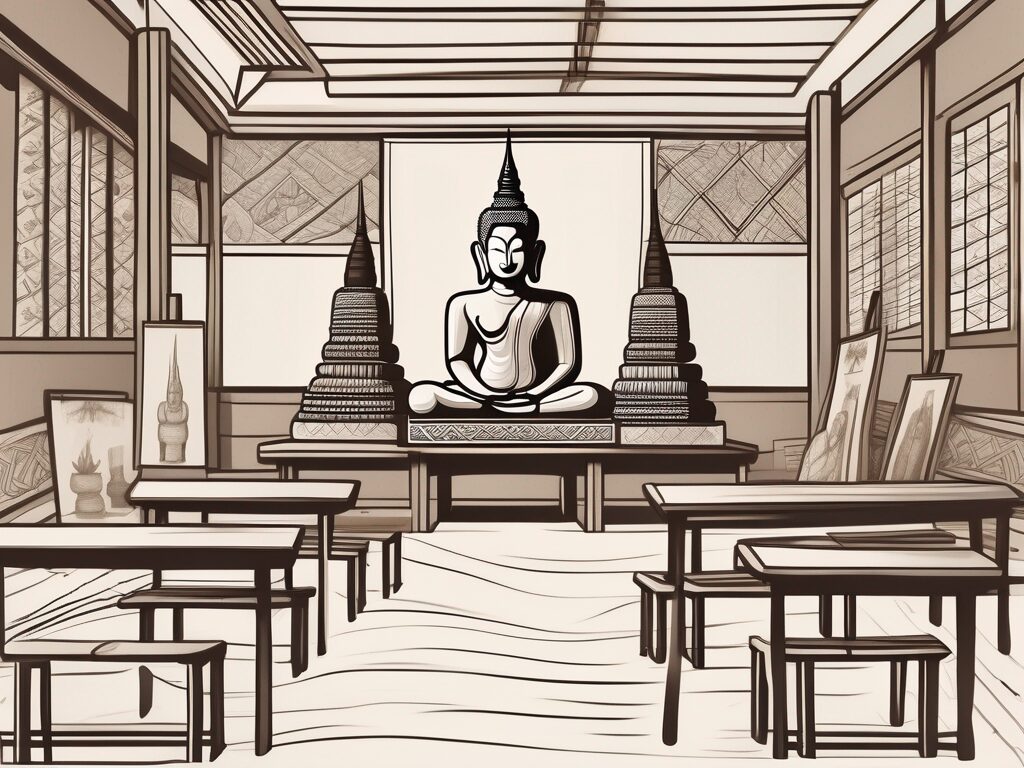Thailand, a country known for its rich cultural heritage, has been making significant strides in the field of arts and humanities education. This sector is often overlooked in favour of science, technology, engineering, and mathematics (STEM) subjects. However, the importance of arts and humanities in shaping a well-rounded individual cannot be understated. Let’s delve deeper into the state of arts and humanities education in Thailand and how it’s shaping the country’s future.
The Current State of Arts and Humanities Education
Arts and humanities education in Thailand is a vibrant and dynamic field. It encompasses a wide range of disciplines, including literature, philosophy, history, and the visual and performing arts. These subjects are taught in schools and universities across the country, with an increasing emphasis on critical thinking and creativity.
One of the key features of arts and humanities education in Thailand is its focus on the country’s rich cultural heritage. Students are encouraged to explore and understand their cultural roots, which helps to foster a sense of national identity and pride. This is akin to the way British schools place importance on studying Shakespeare or the history of the British Empire.
Challenges in Arts and Humanities Education
Despite the progress made, arts and humanities education in Thailand faces several challenges. One of the main issues is the lack of funding. Many schools and universities struggle to provide adequate resources for arts and humanities programmes, which can limit the quality of education.
Another challenge is the perception of arts and humanities as ‘less important’ than STEM subjects. This mindset can discourage students from pursuing these subjects, leading to a lack of diversity in the workforce. It’s a bit like preferring a full English breakfast over a continental one, without appreciating the variety and flavours the latter has to offer.
The Importance of Arts and Humanities Education
Arts and humanities education plays a crucial role in shaping well-rounded individuals. It encourages students to think critically, develop empathy, and understand different cultures and perspectives. These skills are invaluable in today’s globalised world, much like a Swiss Army knife is in a survival situation.
Moreover, arts and humanities education can also contribute to the country’s economic growth. The creative industries, which include fields like design, film, and music, are a significant part of Thailand’s economy. By nurturing creative talents, arts and humanities education can help to drive innovation and economic development.
Arts and Humanities in the Digital Age
With the advent of digital technology, the field of arts and humanities is evolving. Digital humanities, which involve the use of digital tools and methods in humanities research, is a growing field in Thailand. This is similar to how traditional painting has evolved with the introduction of digital art tools.
Moreover, digital technology also provides new opportunities for arts education. For example, virtual reality can be used to create immersive experiences for art and history lessons, making learning more engaging and interactive.
The Future of Arts and Humanities Education in Thailand
The future of arts and humanities education in Thailand looks promising. There is a growing recognition of the importance of these subjects, both in terms of personal development and economic growth. Just like a seedling growing into a tree, it’s a slow process but the results can be magnificent.
Moreover, the integration of digital technology in arts and humanities education opens up new possibilities for teaching and learning. It’s akin to the transition from horse-drawn carriages to automobiles, bringing about a new era of mobility and possibilities.
With continued investment and support, arts and humanities education in Thailand has the potential to flourish, contributing to the country’s cultural richness and economic prosperity. It’s a bit like nurturing a garden – with the right care and attention, it can bloom into a beautiful and vibrant space.
Conclusion
In conclusion, arts and humanities education in Thailand is a dynamic and evolving field. Despite the challenges, it plays a crucial role in shaping well-rounded individuals and contributing to the country’s economic growth. With the integration of digital technology, the future of arts and humanities education in Thailand looks promising.
So, whether you’re a student considering your options, an educator looking to inspire, or simply someone interested in the state of education in Thailand, it’s clear that arts and humanities are an essential part of the educational landscape. Just like a good cup of tea is to a Brit, it’s something that should not be overlooked.
Advance Your Teaching Career with IPGCE
As we’ve explored the significance of arts and humanities education in Thailand, it’s evident that educators play a pivotal role in nurturing the next generation of creative minds. If you’re an educator aiming to enhance your qualifications, broaden your professional network, and gain a deeper understanding of global education systems, the International Postgraduate Certificate in Education (iPGCE) is your gateway to success. With the iPGCE, you’re not just overcoming the barriers to international teaching positions; you’re also investing in your career progression, with a proven track record of increased interview callbacks, promotion rates, and salary growth. Embrace the opportunity to join a vibrant community of educators and benefit from flexible online study options that complement your work commitments. Take the next step in your professional journey and Join the UK’s #1 Teacher Training Course today.

